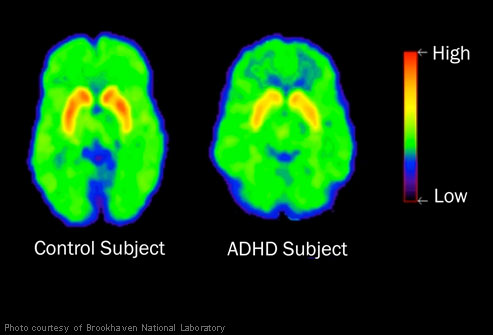compulsiverambler
New member
- Joined
- Sep 15, 2009
- Messages
- 446
- Enneagram
- 5w6
- Instinctual Variant
- sp/so
Can't post videos of myself due to technophobia so the only footage I have (as everything else on Youtube seems to be of medicated or soley inattentive adult AD/HDers, who look normal until you have them perform certain kinds of tasks) to share of actual hyperactive symptoms in adults is the piece below. Watch from 7:04 of this video, the interview with Beverley. The way she sits leaning forwards and tense, doesn't make prolonged eye contact, pauses a lot and fidgets unceasingly is how I am when I have to sit and focus on something (except typing and web surfing, for which I rock backwards and forwards constantly and play with my lips ears and hands, leap up now and then and look even worse  ). It's unconscious self-stimulation: movement, muscular tension and leaning forwards all have subtle positive influences on the bloodflow, chemistry and brainwaves of the prefrontal cortex. My speech is more hurried and clumsy than hers, but other than that our mannerisms are very similar. I would be surprised if we were the same MB type though, she likes DIY.
). It's unconscious self-stimulation: movement, muscular tension and leaning forwards all have subtle positive influences on the bloodflow, chemistry and brainwaves of the prefrontal cortex. My speech is more hurried and clumsy than hers, but other than that our mannerisms are very similar. I would be surprised if we were the same MB type though, she likes DIY. 
[YOUTUBE="http://www.youtube.com/watch?v=dxNxIJ7rzw8"]7:04 onwards, adult with ADHD[/YOUTUBE]
Now compare with a typical (and apparently neurotypical) ENFP.
[YOUTUBE="http://www.youtube.com/watch?v=P1JyXOljBwU"]ENFP's experience of being ENFP[/YOUTUBE]
Believe it or not, some people manage to confuse these concepts.
[YOUTUBE="http://www.youtube.com/watch?v=dxNxIJ7rzw8"]7:04 onwards, adult with ADHD[/YOUTUBE]
Now compare with a typical (and apparently neurotypical) ENFP.
[YOUTUBE="http://www.youtube.com/watch?v=P1JyXOljBwU"]ENFP's experience of being ENFP[/YOUTUBE]
Believe it or not, some people manage to confuse these concepts.


